Filter by
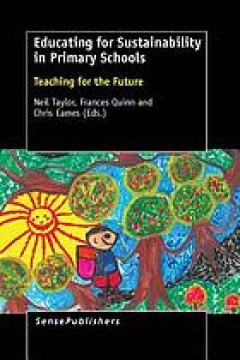
Educating for Sustainability in Primary Schools Teaching for the Future
Education for Sustainability is a key priority in today's schools, as our society seeks to find a balance between environmental, social, cultural, political and economic imperatives that affect our future. As young children will become the next generation of adults, it is vital that they are educated about sustainability issues, so that they can learn to make informed decisions and take positiv…
- Edition
- -
- ISBN/ISSN
- 9789463000468
- Collation
- x, 370 pages
- Series Title
- -
- Call Number
- 372.21
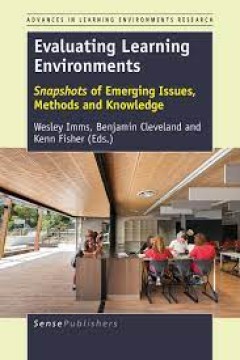
Evaluating Learning Environments Snapshots of Emerging Issues, Methods and K…
The recent trend in innovative school design has provided exciting places to both learn and teach. New generation learning environments have encouraged educators to unleash responsive pedagogies previously hindered by traditional classrooms, and has allowed students to engage in a variety of learning experiences well beyond the traditional ‘chalk and talk’ common in many schools. These spac…
- Edition
- -
- ISBN/ISSN
- 978-94-6300-537-1
- Collation
- VIII, 258
- Series Title
- -
- Call Number
- -

Transitions in Mathematics Education
This book examines the kinds of transitions that have been studied in mathematics education research. It defines transition as a process of change, and describes learning in an educational context as a transition process. The book focuses on research in the area of mathematics education, and starts out with a literature review, describing the epistemological, cognitive, institutional and socioc…
- Edition
- 1
- ISBN/ISSN
- 978-3-319-31622-2
- Collation
- X, 34
- Series Title
- ICME-13 Topical Surveys
- Call Number
- -
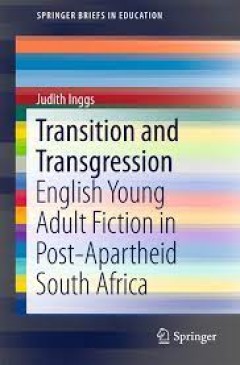
Transition and Transgression
This book conveys the story of a society in the throes of restructuring itself and struggling to find a new identity. A particularly attractive aspect of this study is the focus on young adult literature and its place in post-apartheid South Africa, as well as its potential use in the classroom and lecture hall. Intersecting these two topics provides a compelling lens for refocusing debate on …
- Edition
- 1
- ISBN/ISSN
- 978-3-319-25534-7
- Collation
- VI, 120
- Series Title
- SpringerBriefs in Education
- Call Number
- -
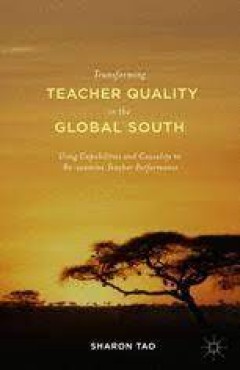
Transforming Teacher Quality in the Global South
A common story of teachers from the Global South portrays them as deficient, unreliable and unprofessional. However, this book uses an innovative Capability Approach/Critical Realist lens to reveal the causal links between teachers' constrained capabilities and their 'criticised' behaviours and offer nuanced, creative strategies for improvements.
- Edition
- 1
- ISBN/ISSN
- 978-1-137-49544-0
- Collation
- X, 233
- Series Title
- -
- Call Number
- -
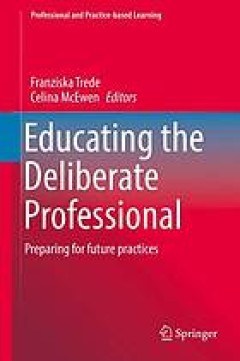
Educating the deliberate professional : preparing for future practices
This book takes a fresh look at professional practice and professional education. In times of increased managerialism of academic teaching and a focus on graduate learning outcomes, it discusses possibilities to teach and learn otherwise. A deliberate professional is someone who consciously, thoughtfully and courageously makes choices about how to act and be in the practice world. A pedagogy of…
- Edition
- -
- ISBN/ISSN
- 9783319329581
- Collation
- xiii, 234 pages
- Series Title
- -
- Call Number
- 378

Jost Bürgi's Aritmetische und Geometrische Progreß Tabulen (1620): Edition …
This monograph presents a groundbreaking scholarly treatment of the German mathematician Jost Bürgi’s original work on logarithms, Arithmetische und Geometrische Progreß Tabulen. It provides the first-ever English translation of Bürgi’s text and illuminates his role in the development of the conception of logarithms, for which John Napier is traditionally given priority. High-resolutio…
- Edition
- -
- ISBN/ISSN
- 978-1-4939-3161-3
- Collation
- -
- Series Title
- -
- Call Number
- -
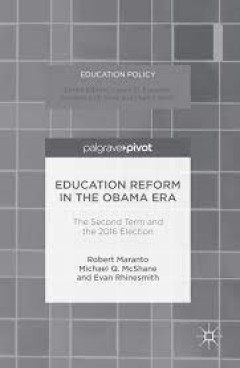
Education reform in the Obama Era : the second term and the 2016 election
This title offers a sophisticated overview of President Obama's education agenda, exploring how and why education policy became national and ultimately presidential over the past seven decades
- Edition
- -
- ISBN/ISSN
- 9781137582126
- Collation
- xi, 117 pages
- Series Title
- -
- Call Number
- 371
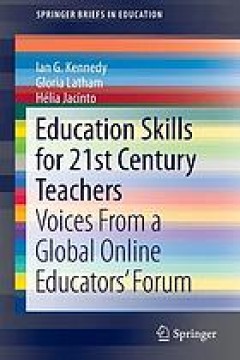
Education skills for 21st century teachers : voices from a global online educ…
This monograph presents the current views, challenges and future needs of educators from a global online exchange where educators and researchers discuss the 21st century skills needed by students and teachers. The three editors, who participated in the global online research discussion group, also assumed the role of authors to summarise, analyse and celebrate the myriad of ideas generated in …
- Edition
- -
- ISBN/ISSN
- 9783319226088
- Collation
- xvii, 114 pages
- Series Title
- -
- Call Number
- 378
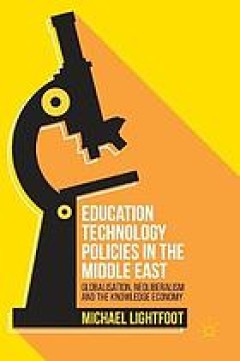
Education Technology Policies in the Middle East : Globalisation, Neoliberali…
This book explores the potential educational technologies have for transforming education in the Middle East. Although technology has increasingly become a part of classrooms around the globe over recent decades, its application in classrooms in the MENA region remains underused and this book draws on a case study from the Arabian Gulf to examine the beneficial impact technologies have on teach…
- Edition
- -
- ISBN/ISSN
- 9783319332666
- Collation
- xix, 191 pages 4 illustrations
- Series Title
- -
- Call Number
- 370
 Computer Science, Information & General Works
Computer Science, Information & General Works  Philosophy & Psychology
Philosophy & Psychology  Religion
Religion  Social Sciences
Social Sciences  Language
Language  Pure Science
Pure Science  Applied Sciences
Applied Sciences  Art & Recreation
Art & Recreation  Literature
Literature  History & Geography
History & Geography